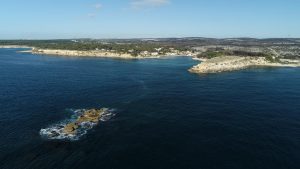UN General Assembly Hall, New York, 19 July 2022
Joint Statement
On the occasion of the High-Level Meeting “Moment for Nature” on 19 July 2022, we representing 58 countries from all regions, including members of at least one of the three coalitions – the “Leaders Pledge for Nature”, the “High Ambition Coalition for Nature and People” and the “Global Ocean Alliance”, and supported by organizations, civil society and the private sector – are combining efforts to send a united message to step up global ambition to address the interdependent crises of biodiversity loss, ecosystem degradation and climate change.
We welcome the “Moment for Nature” and the intentions of the President of the General Assembly to break siloes and foster greater collaboration on reducing greenhouse gas emissions, protecting, conserving and sustainably using biodiversity on land and in the ocean, restoring life to degraded ecosystems, tackling pollution, achieving circular, nature positive economies and fostering sustainable development.
We also reaffirm our commitment and that of more than 100 countries to protect or conserve at least 30% of the planet’s land and ocean by 2030.
We are in a state of planetary emergency. One million species are at risk of extinction and irreversible and cascading tipping points in the Earth’s ability to self-regulate might be passed within decade.
The science is clear: biodiversity loss, land and ocean degradation, pollution, resource depletion and climate change – driven in large part by unsustainable production and consumption – are inextricably linked and accelerating at an unprecedented rate.
This acceleration is causing irreversible harm to our life support systems and aggravating poverty and inequalities, as well as hunger and malnutrition, increasing the risks of zoonotic diseases, future pandemics and security crises. Unless halted and reversed, it will cause significant damage to global economic, social and political resilience and stability, disproportionately and first affecting the world’s populations and regions most driven towards vulnerability.
We support an integrated and holistic approach that addresses the direct and indirect drivers of biodiversity loss, climate change and land and ocean degradation and takes immediate and integrated action on the triple planetary crisis across all sectors and at all levels, based on robust scientific evidence and traditional knowledge.
We are deeply alarmed by the lack of progress in implementing SDG 14 and SDG 15 under review during the 2022 High-level Political Forum and regret our collective failure to achieve the targets that matured in 2020. Humanity simply cannot risk failing on nature. There is an urgent need to accelerate progress and pursue higher ambition, in light of the outcomes of the intersessional Convention on Biological Diversity (CBD) negotiations in Nairobi in June.
We therefore reiterate our call for action and for fast and deep transformative change, matching the scale of the crises at hand.
We, a geographically and biologically diverse group of developed and developing countries, stand united in our commitment to dramatically increase our collective efforts to agree on an ambitious post-2020 global biodiversity framework at the upcoming fifteenth meeting of the Conference of the Parties on the Convention on Biological Diversity in Montreal (CBD COP15).
Additional efforts are urgently needed from all Parties to ensure that the goals, targets and means of implementation of the Framework reach the necessary ambition to halt and reverse biodiversity loss by 2030.
The global biodiversity framework’s mission should be, by 2030, to halt and reverse biodiversity loss for the benefit of planet and people and to put nature on a path to recovery. The framework must contain goals for 2050 and targets for 2030, which are specific, measurable, ambitious, relevant and time-bound, so that progress can be tracked at national and global levels. It should deliver on the three interlinked objectives of the Convention on Biological Diversity in a balanced manner, and link to the objectives of the United Nations Framework Convention on Climate Change (UNFCCC) and the United Nations Convention to Combat Desertification (UNCCD), to benefit all in society, especially those in vulnerable situations.
As a minimum, the framework should commit all Parties to address the key direct and indirect pressures and drivers of biodiversity loss, including land and sea use change, the unsustainable and illegal use of species, climate change, pollution and invasive alien species through, at least: retaining intact and threatened ecosystems, addressing land- and sea-use change, protecting or conserving at least 30% of the global land and of the ocean, whilst fully respecting the rights of indigenous peoples, as well as local communities, in accordance with national legislation and international instruments as appropriate, restoring degraded ecosystems, reducing pollution from all sources and implementing nature-based solutions in line with the UNEA.5.2 resolution, and implementing the One Health approach.
The framework should transform current unsustainable patterns of consumption and production into sustainable ones to meet peoples’ needs and leave no one behind, including through action towards sustainable and resilient food systems, while remaining well within the limits of planetary boundaries.
The implementation of an ambitious and transformative global biodiversity framework must be accompanied by an ambitious resource mobilization strategy, which substantially increases resources from all sources, domestic and international, public and private. We must also commit to aligning all public and private financial flows to a nature-positive economy and with the objectives of the Rio Conventions and the global biodiversity framework, eliminating incentives harmful to biodiversity whilst creating positive ones and increasing the efficiency and transparency of financial flows.
We underscore that the effective implementation of an ambitious post-2020 global biodiversity framework will require finance, capacity building and development, technical and scientific cooperation and technology transfer. We recognize that all Parties must have the necessary capacities to implement the framework, and we acknowledge the fundamental importance of increasing the mobilization of resources from all sources in order to close these gaps.
Fundamental to the implementation of the global biodiversity framework will be the principles of gender equality, women and girl’s empowerment, youth, rights-based approaches and the full and effective participation of Indigenous Peoples and Local Communities.
We strongly encourage all Parties and stakeholders to join our call to mobilize action and ensure the highest ambition in the upcoming CBD negotiations, commensurate with the planetary emergency. We are convinced that constructive solutions can be found to overcome divergences and address the planetary emergency together with urgent and immediate action, and achieve the vision of living in harmony with nature by 2050.
Endorsed by:
Leaders Pledge for NatureHigh Ambition Coalition for Nature and PeopleGlobal Oceans Alliance Albania
Australia
Austria
Belgium
Bosnia and Herzegovina
Bulgaria
Canada
Chad
Chile
Colombia
Costa Rica
Croatia
Cyprus
Czech Republic
Denmark
Democratic Republic of Congo
Estonia
Finland
France
Germany
Greece
Hungary
Ireland
Italy
Jordan
Latvia
Liberia
Lithuania
Luxembourg
Malta
Mexico
Moldova
Monaco
Montenegro
Morocco
Netherlands
New Zealand
Nigeria
North Macedonia
Norway
Palau
Peru
Portugal
Romania
Saint Lucia
Serbia
Seychelles
Slovakia
Slovenia
Spain
Sweden
Switzerland
Turkey
United Kingdom
United States of America


